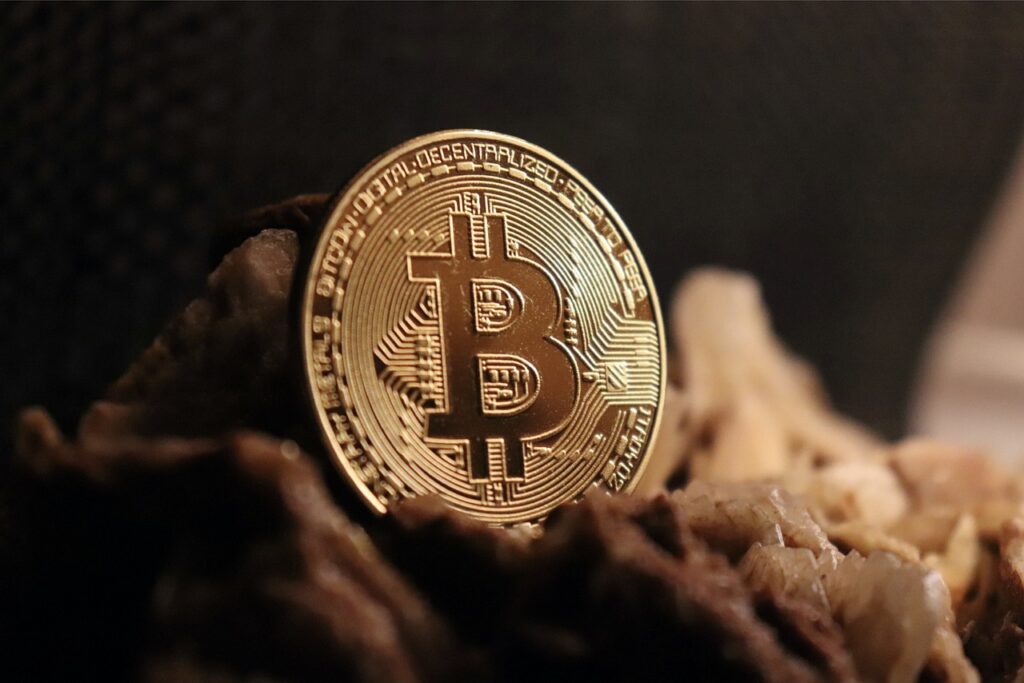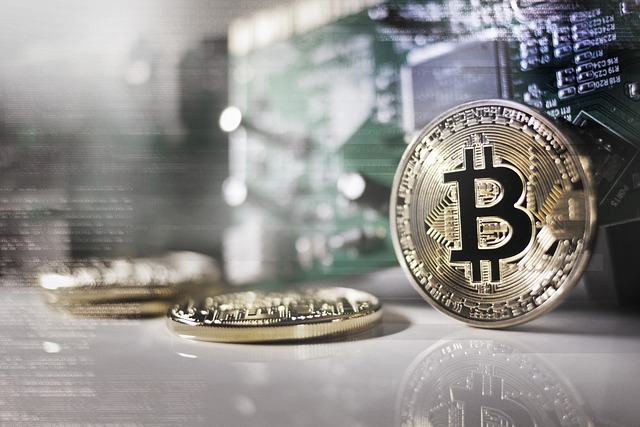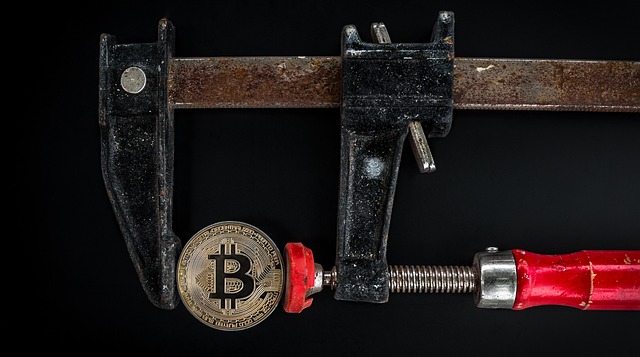Decentralized Finance Pros and Cons: Making Informed Choices
Decentralized Finance Pros and Cons: Making Informed Choices

What is Decentralized Finance?
Decentralized Finance, or DeFi for short, is an emerging financial system that operates on decentralized networks, such as blockchain technology. Unlike traditional financial systems that rely on centralized institutions like banks, DeFi aims to create a transparent and open ecosystem where individuals have direct control over their finances. It leverages smart contracts to facilitate various financial activities, including lending, borrowing, trading, and asset management. As a result, DeFi eliminates intermediaries and offers users greater autonomy and access to financial services.
One of the fundamental principles of DeFi is its permissionless nature. Unlike traditional finance, anyone with an internet connection and a compatible digital wallet can participate in DeFi applications. This accessibility fosters financial inclusion, allowing individuals who were previously excluded from traditional financial systems to access essential financial services. Moreover, the decentralized nature of DeFi reduces reliance on central authorities, making it resistant to censorship or control by a single entity. This potential for democratization and empowerment has been a driving force behind the rapid growth and adoption of DeFi in recent years.
The Benefits of Decentralized Finance
One of the key benefits of decentralized finance is the removal of intermediaries. In traditional financial systems, intermediaries such as banks or brokers play a crucial role in facilitating transactions and managing funds. However, decentralized finance eliminates the need for these intermediaries by operating on a peer-to-peer basis using blockchain technology. This means that individuals can directly interact and transact with each other, without the need for a trusted third party. By eliminating intermediaries, decentralized finance aims to reduce costs, increase efficiency, and provide greater transparency to users.
Another benefit of decentralized finance is its potential for financial inclusion. In traditional financial systems, access to financial services is often limited to those who have access to a bank account or meet certain requirements. However, decentralized finance has the potential to overcome these barriers by leveraging blockchain technology. This means that individuals who are unbanked or underbanked can have access to a wide range of financial services, such as lending, savings, and investments. In addition, decentralized finance also has the potential to enable cross-border transactions, allowing for greater financial inclusion on a global scale.
Challenges and Risks of Decentralized Finance
Decentralized finance, or DeFi, has undoubtedly emerged as a promising and disruptive force in the financial industry. However, like any innovative technology, it also comes with its fair share of challenges and risks. First and foremost, the lack of regulatory oversight in the DeFi space raises concerns about investor protection and market stability. With decentralized platforms operating outside the traditional financial system, it becomes difficult for authorities to enforce compliance, monitor transactions, and prevent fraudulent activities. This regulatory ambiguity can create a fertile ground for scams, hacks, and money laundering, which pose significant risks to participants in the DeFi ecosystem.
Moreover, the complex nature of decentralized finance has given rise to technical challenges that need to be addressed. Smart contract vulnerabilities, for instance, have been exploited in the past, leading to substantial losses for users. As DeFi applications continue to gain popularity, the risk of these vulnerabilities being exploited increases, making the need for robust security measures even more critical. Additionally, scalability issues have surfaced as DeFi protocols struggle to handle increasing transaction volumes. The slow transaction processing times and high fees associated with many DeFi platforms hinder mass adoption and limit the potential for widespread financial inclusion.
While decentralized finance holds immense promise, it is crucial to recognize and address the challenges and risks associated with this emerging field. By implementing effective regulatory frameworks and focusing on enhancing security and scalability, the DeFi industry can navigate these obstacles and unlock its full potential. However, it will require close collaboration between industry participants, regulators, and technology experts to strike a balance between innovation and risk mitigation in the ever-evolving world of decentralized finance.
Accessibility and Inclusion in Decentralized Finance
Accessibility and inclusion play a crucial role in decentralized finance, ensuring that financial services are accessible to everyone, regardless of their background or circumstances. One of the key advantages of decentralized finance is its ability to break down barriers and provide financial services to individuals who may not have had access to traditional banking systems. Through decentralized platforms, individuals can participate in various financial activities, such as lending, borrowing, and investing, without the need for intermediaries or strict eligibility criteria. This opens up opportunities for individuals in underserved communities, empowering them to take control of their finances and participate in the global economy.
However, it is important to acknowledge that there are challenges to achieving full accessibility and inclusion in decentralized finance. One of the main barriers is the digital divide, where not everyone has equal access to the internet or the necessary technological infrastructure to participate in decentralized finance. This can limit the opportunities available to individuals who do not have access to smartphones, computers, or reliable internet connections. Additionally, there may be a lack of financial literacy and awareness about decentralized finance, which can prevent individuals from fully understanding and benefiting from these technologies. To truly promote accessibility and inclusion, it is essential to address these challenges and ensure that decentralized finance is accessible to all, regardless of their technological or financial literacy levels.
Security and Privacy Concerns in Decentralized Finance
Security and privacy are crucial aspects when it comes to decentralized finance (DeFi). As the use of decentralized platforms and blockchain technology increases, so does the importance of protecting user information and assets. One of the major concerns in DeFi is the vulnerability of smart contracts to hacking and exploits. Since these contracts are self-executing and irreversible, any bugs or vulnerabilities can lead to substantial financial losses for the users. Therefore, developers need to prioritize security audits and adopt best practices to minimize these risks. Additionally, the privacy of individuals’ financial transactions is a growing concern in DeFi. While blockchain technology offers transparency, it also poses challenges in maintaining user privacy. Striking the right balance between transparency and privacy is crucial to ensure the adoption and success of decentralized finance on a global scale.
Another area of concern in DeFi is the potential for phishing attacks and scams. With the increasing popularity of decentralized platforms, hackers are finding innovative ways to exploit unsuspecting users. Phishing attacks, where users are tricked into revealing their private keys or seed phrases, can result in the loss of assets. Scammers also create fake decentralized applications (dApps) and platforms to dupe users into depositing their funds, only to disappear with the money. Education and awareness are essential in mitigating these risks, as users need to be cautious and ensure they are interacting with legitimate platforms. Moreover, the nascent nature of the DeFi ecosystem makes it susceptible to regulatory challenges, as jurisdictions may differ in their approach to securing user data and privacy. It is crucial for the industry to work together with regulators to establish clear guidelines and frameworks that protect user security and privacy while fostering innovation in decentralized finance.
• Smart contracts are vulnerable to hacking and exploits, leading to financial losses for users.
• Security audits and best practices should be prioritized by developers to minimize risks.
• Balancing transparency and privacy is crucial in maintaining user trust in DeFi.
• Phishing attacks and scams pose a significant threat to users’ assets.
• Education and awareness are key in mitigating the risk of phishing attacks.
• Fake dApps and platforms can deceive users into depositing funds, resulting in loss of money.
• Regulatory challenges exist due to differing approaches to securing user data and privacy.
• Collaboration between the industry and regulators is necessary for establishing clear guidelines.
Regulatory Considerations for Decentralized Finance
When it comes to decentralized finance (DeFi), regulatory considerations play a crucial role in shaping the landscape.

One key challenge for regulators is the lack of clear jurisdictional boundaries in the DeFi space. Since most DeFi platforms are decentralized, they are not tied to any specific geographical location. This makes it difficult for regulators to identify which jurisdiction’s laws and regulations should apply. Additionally, the open and permissionless nature of DeFi platforms makes it challenging to enforce compliance with existing regulations. Without the ability to control or regulate these platforms directly, regulators must rely on other means, such as working with industry participants or implementing new regulatory frameworks specifically tailored to the DeFi ecosystem.
The Role of Smart Contracts in Decentralized Finance
Smart contracts play a crucial role in the world of decentralized finance (DeFi). These self-executing agreements, coded on the blockchain, remove the need for intermediaries and enable the automation of financial transactions. In DeFi, smart contracts serve as the backbone, powering various decentralized applications (dApps) that offer users a wide range of financial services. From lending and borrowing to trading and yield farming, smart contracts ensure that transactions are executed without the need for trust in a centralized authority. They provide transparency, security, and efficiency, all while fostering a more inclusive and accessible financial ecosystem.
One of the key benefits of smart contracts in DeFi is their ability to eliminate the need for intermediaries. Traditional financial systems often involve multiple intermediaries, such as banks, clearinghouses, and brokers, which can slow down processes and increase costs. Smart contracts, on the other hand, automate these processes by executing predefined actions once specific conditions are met. This reduces the time taken for transactions and eliminates the need for middlemen, resulting in faster and cheaper financial services. Moreover, since smart contracts are powered by blockchain technology, they provide immutability and transparency, ensuring that all transactions are recorded and can be audited by anyone, further enhancing trust in the system.
Interoperability and Scalability in Decentralized Finance
Interoperability and scalability are two crucial aspects that are often discussed in the context of decentralized finance. Interoperability refers to the ability of different platforms and protocols to seamlessly communicate and interact with each other. In the decentralized finance ecosystem, this becomes essential as it allows users to access a wide range of financial services and products without being confined to a single platform. For instance, with interoperability, users can move tokens across various decentralized exchanges, borrow funds from different lending protocols, and participate in diverse decentralized applications, enhancing the overall user experience.
Scalability, on the other hand, addresses the challenge of accommodating a large number of transactions and users on a decentralized network. As decentralized finance gains popularity, it becomes crucial for the underlying infrastructure to handle the increasing demand effectively. This is especially important considering that traditional financial systems often suffer from scalability issues, leading to delays and high fees. In decentralized finance, advancements in blockchain technology are being pursued to overcome this challenge and ensure that multiple transactions can be processed quickly and efficiently. Achieving scalability in decentralized finance is essential for its widespread adoption and continued growth, as it enables the ecosystem to cater to a larger user base and handle the volume of transactions effectively.
The Potential for Financial Innovation in Decentralized Finance
Decentralized finance (DeFi) has the potential to revolutionize the financial industry by fostering financial innovation. With the advent of blockchain technology, traditional financial systems are being challenged, paving the way for new possibilities. One area where DeFi is showing promise is in creating more efficient and accessible lending and borrowing platforms. By utilizing smart contracts and decentralized platforms, individuals can directly interact with each other, bypassing the need for intermediaries like banks. This not only reduces transaction costs but also opens up opportunities for individuals who may not have had access to traditional financial services before.
Furthermore, DeFi is also enabling the creation of new financial instruments and services. For example, tokenization allows assets like real estate or art to be divided into smaller units, making them more easily tradable and accessible to a wider audience.

In conclusion, the potential for financial innovation in DeFi is immense. As more projects and platforms emerge, we can expect to see new and creative ways of conducting financial transactions.

Evaluating Decentralized Finance Projects: What to Look For
When evaluating decentralized finance (DeFi) projects, there are several key factors to consider. First and foremost, it is important to assess the project’s overall transparency and governance structure. Look for projects that prioritize open and clear communication with their community, as well as those that have a well-defined decision-making process. A transparent project is more likely to foster trust and attract a dedicated user base.
Next, take a close look at the project’s technological capabilities. Does it utilize cutting-edge blockchain technology? Is the codebase well-audited and secure? Consider the scalability and interoperability of the project as well, as these factors can play a crucial role in its long-term viability. Additionally, assess whether the project has a robust ecosystem and strong developer community, as these elements can contribute to its sustainability and growth.
In conclusion, evaluating DeFi projects requires a thorough examination of their transparency, governance structure, technological capabilities, scalability, and ecosystem. By considering these factors, investors and users can make more informed decisions and support projects that have the potential to drive innovation and revolutionize the financial industry.
What is decentralized finance?
Decentralized finance, also known as DeFi, refers to a financial system that operates on blockchain technology without the need for intermediaries like banks or financial institutions.
What are the benefits of decentralized finance?
DeFi offers benefits such as increased financial accessibility, lower transaction costs, faster and borderless transactions, and greater control over one’s assets.
What are the challenges and risks of decentralized finance?
Some challenges and risks of DeFi include smart contract vulnerabilities, regulatory uncertainties, potential for scams or hacks, and limited customer support compared to traditional financial institutions.
How does decentralized finance promote accessibility and inclusion?
DeFi enables anyone with an internet connection to access financial services, regardless of their location or socio-economic status. It can empower the unbanked and underbanked populations by providing them with opportunities for financial participation.
What security and privacy concerns are associated with decentralized finance?
Some concerns include the potential for privacy breaches in public blockchains, vulnerabilities in smart contracts, and the risk of losing funds if private keys are lost or stolen.
What regulatory considerations are there for decentralized finance?
The regulatory landscape for DeFi is still evolving, but considerations include compliance with anti-money laundering (AML) and know-your-customer (KYC) regulations, as well as addressing concerns regarding investor protection and financial stability.
What is the role of smart contracts in decentralized finance?
Smart contracts are self-executing contracts with the terms of the agreement directly written into code. In DeFi, they automate and enforce financial agreements, allowing for trustless and transparent transactions.
Why is interoperability and scalability important in decentralized finance?
Interoperability ensures that different DeFi protocols and platforms can seamlessly communicate and interact with each other, while scalability is crucial for handling increasing transaction volumes without compromising speed or cost efficiency.
What potential does decentralized finance have for financial innovation?
DeFi opens up possibilities for new financial products and services, such as decentralized lending, borrowing, stablecoins, prediction markets, and automated asset management. It encourages experimentation and innovation in the financial sector.
What should I look for when evaluating decentralized finance projects?
When evaluating DeFi projects, consider factors such as project team expertise, technology infrastructure, security measures, audit reports, community engagement, user adoption, liquidity, and sustainability of the project’s economic model.
Todays Featured Product:
Buy, exchange and grow your crypto securely with a Ledger hardware wallet, combined with the Ledger Live app. It’s never been easier to keep your crypto safe and accessible. Buy direct from Ledger.com and get todays Special Offers Here.




